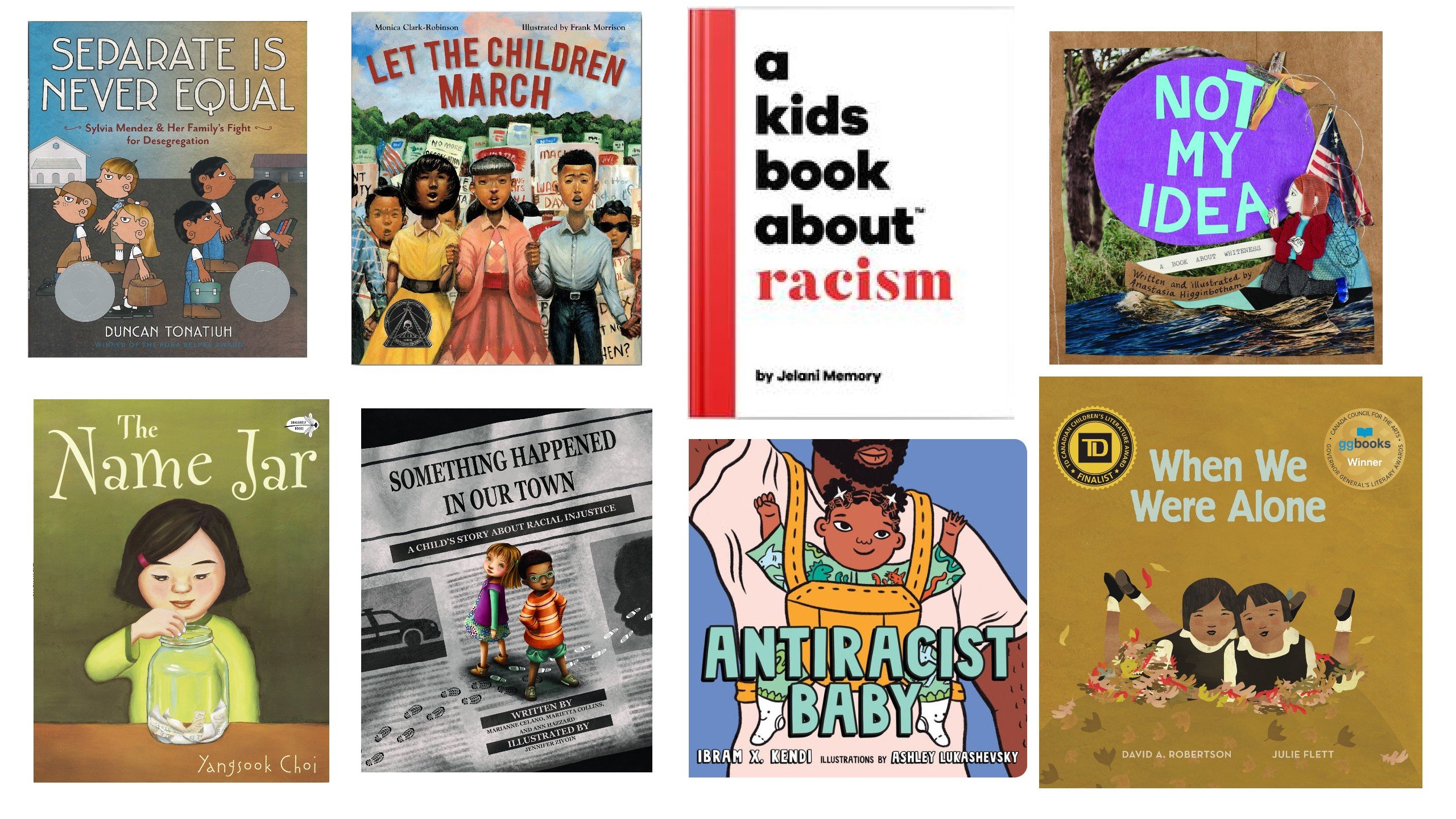
It's more important than ever that we talk to our kids about race. Numerous studies have shown that kids as young as toddler age show signs of racial bias, often picking up on social cues from the adults around them. To get our kids out of their little bubbles and counter future racial bias, experts suggest talking about, seeing, and acknowledging different races and racism as early — and as often — as possible. It's never too early to start having meaningful discussions with kids about race, racism, and diversity, and these are just a few books that can help jump-start those conversations.
'A Kids Book About Racism'
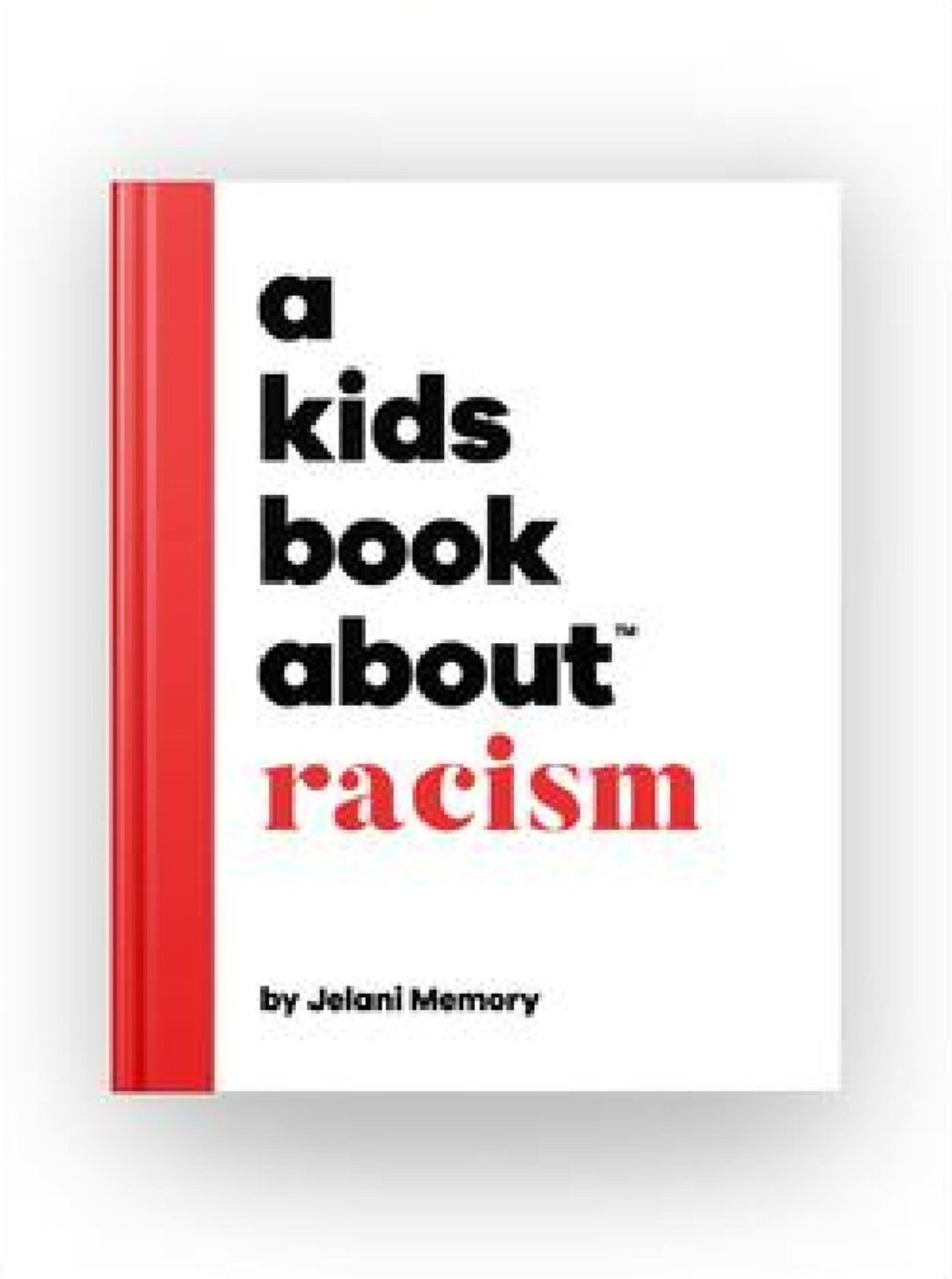
 $20
from
A Kids Book About
$20
from
A Kids Book About
No, it's never too early to talk to kids about racism, and this deceptively simple book gets straight to the point. There's no cutesy story or metaphor — instead, it's a refreshingly candid description of topics like institutional racism, how racism makes other people feel, and how they can identify when it's happening and be an ally — all written in a way for young kids to easily grasp.
'Something Happened in Our Town'
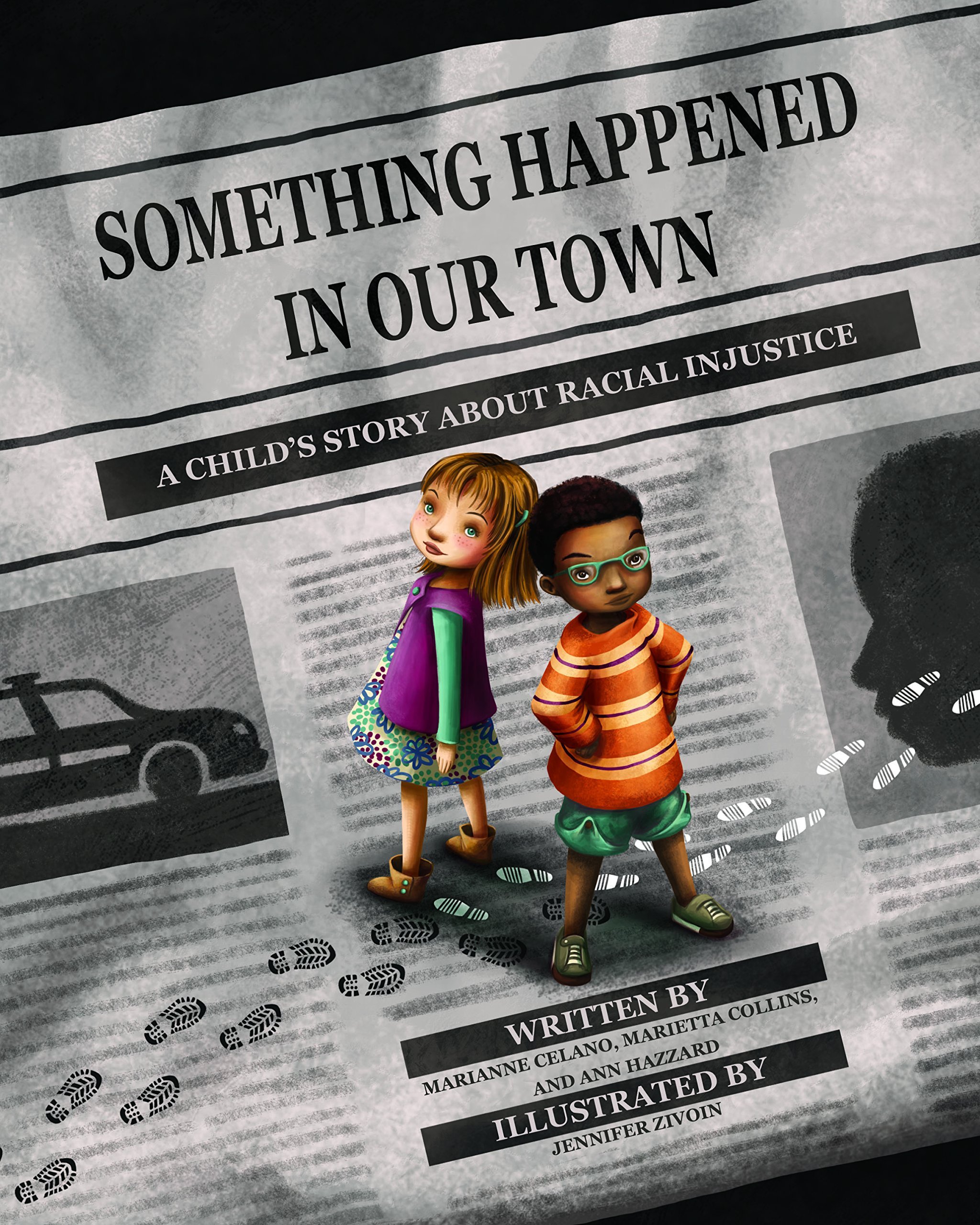
 $17
from
Cultured Books
$17
from
Cultured Books
This timely book follows the story of two families in the same community — one black and one white — after the shooting of a black man by a police officer. The story brings up topics like racial bias and systemic racism in ways that a child can absorb — and ask more questions about. There's a comprehensive discussion guide for parents to help them navigate such topics, including child-friendly dialogue.
'Let the Children March'
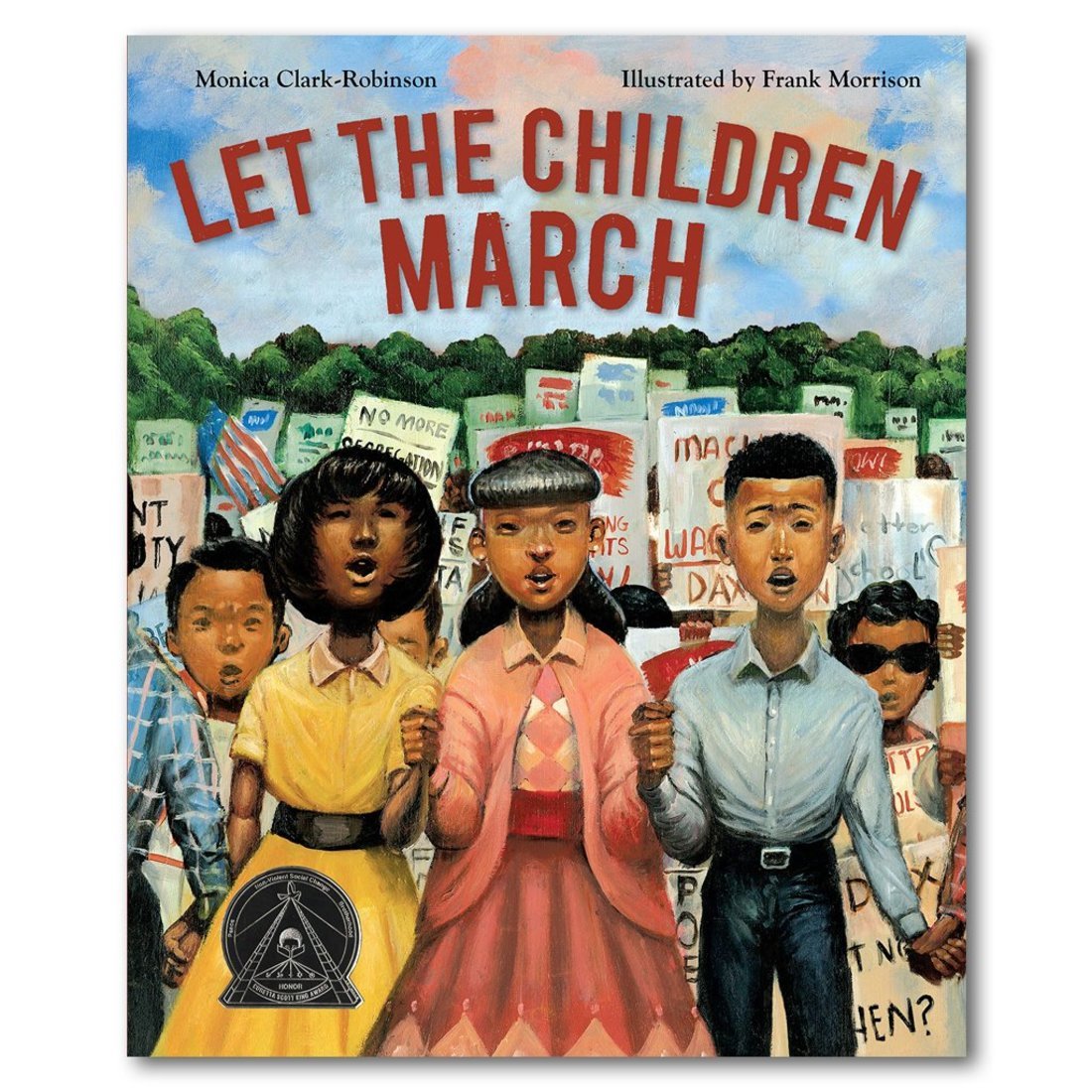
 $16
from
Semicolon Bookstore
$16
from
Semicolon Bookstore
Written in lyrical prose, this gorgeously illustrated book is based on the true story of the thousands of kids and teens that wanted to march for their civil rights in Birmingham, Alabama, in 1963 after hearing Martin Luther King Jr. speak. Their parents struggled with whether to allow them to participate, but ultimately, the kids wanted to make a difference — and so they did, in a movement that became known as the Children's Crusade.
'Separate Is Never Equal'
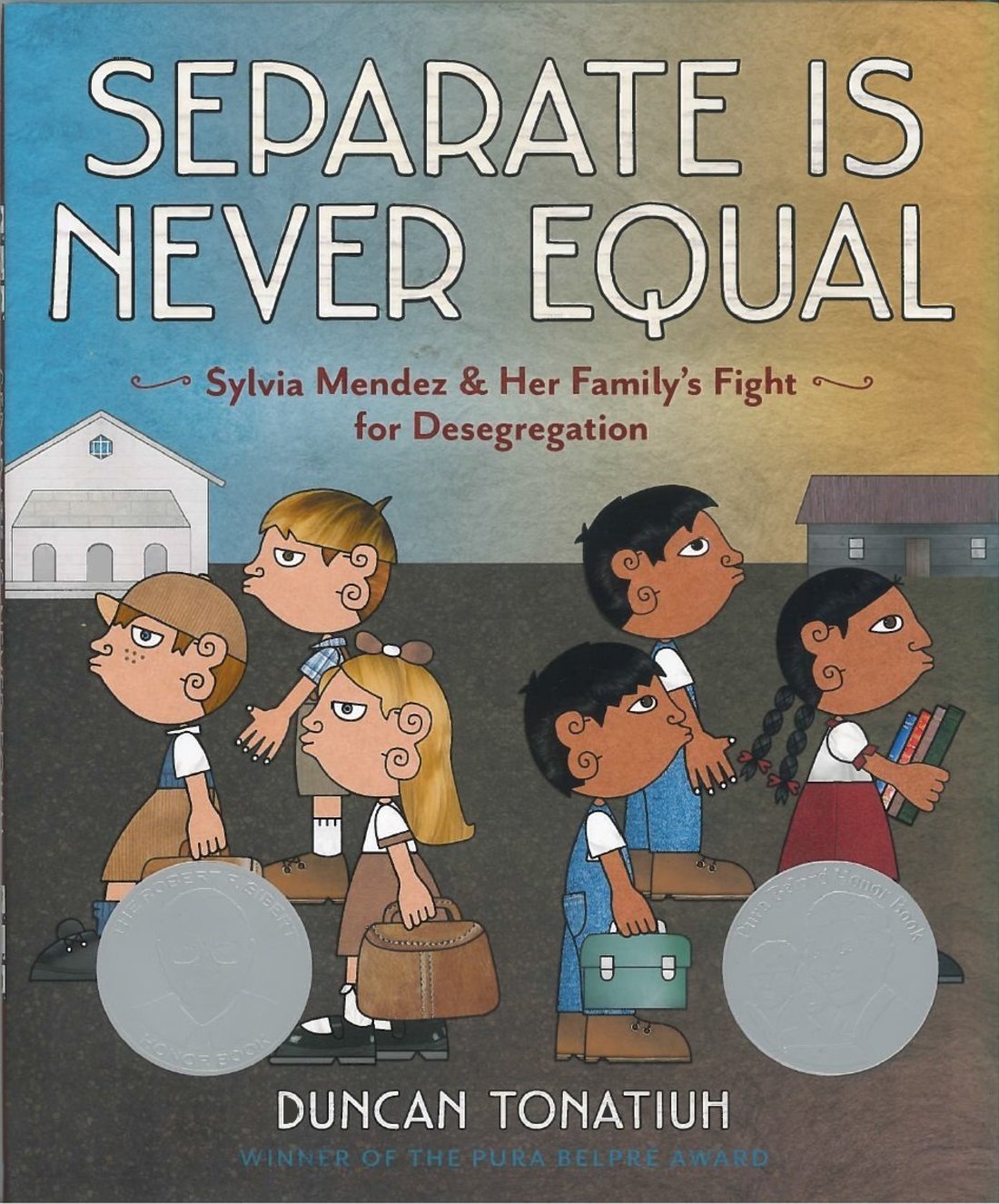
 $17
from
Cultured Books
$17
from
Cultured Books
This is the story of Sylvia Mendez, an American citizen of Puerto Rican and Mexican descent who was denied entrance to a "whites only" school 10 years before Brown v. Board of Education. Little Sylvia and her parents fought the system and eventually helped end school segregation in California.
'A Is for All the Things You Are: A Joyful ABC Book'
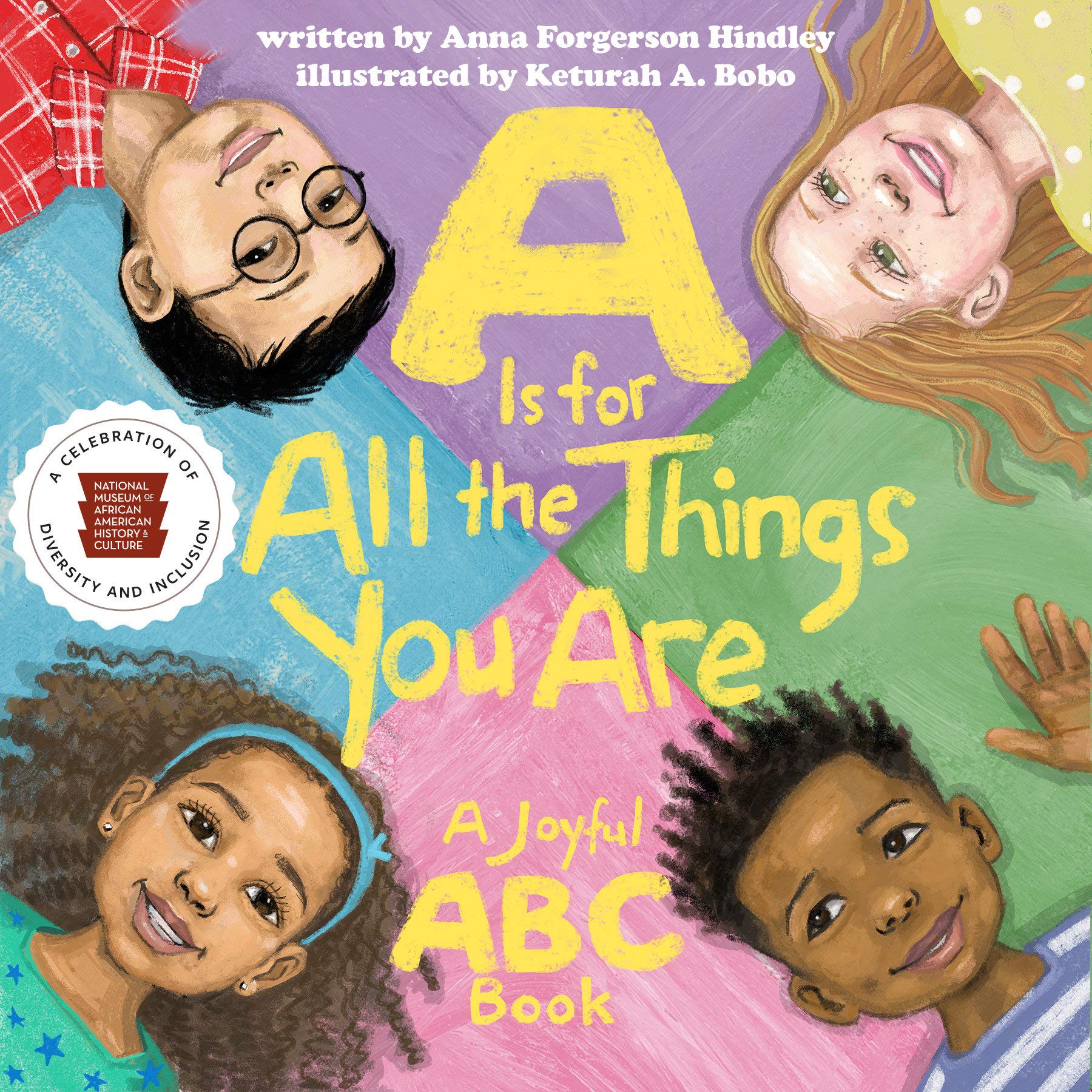
 $9
from
Semicolon Bookstore
$9
from
Semicolon Bookstore
As the title states, this "joyful" board book developed by the National Museum of African American History and Culture teaches little ones to celebrate all the things that make us unique. The beautiful illustrations depict kids of all races, religions, and abilities, making this a must-have for every nursery bookshelf.
'Not My Idea: A Book About Whiteness'
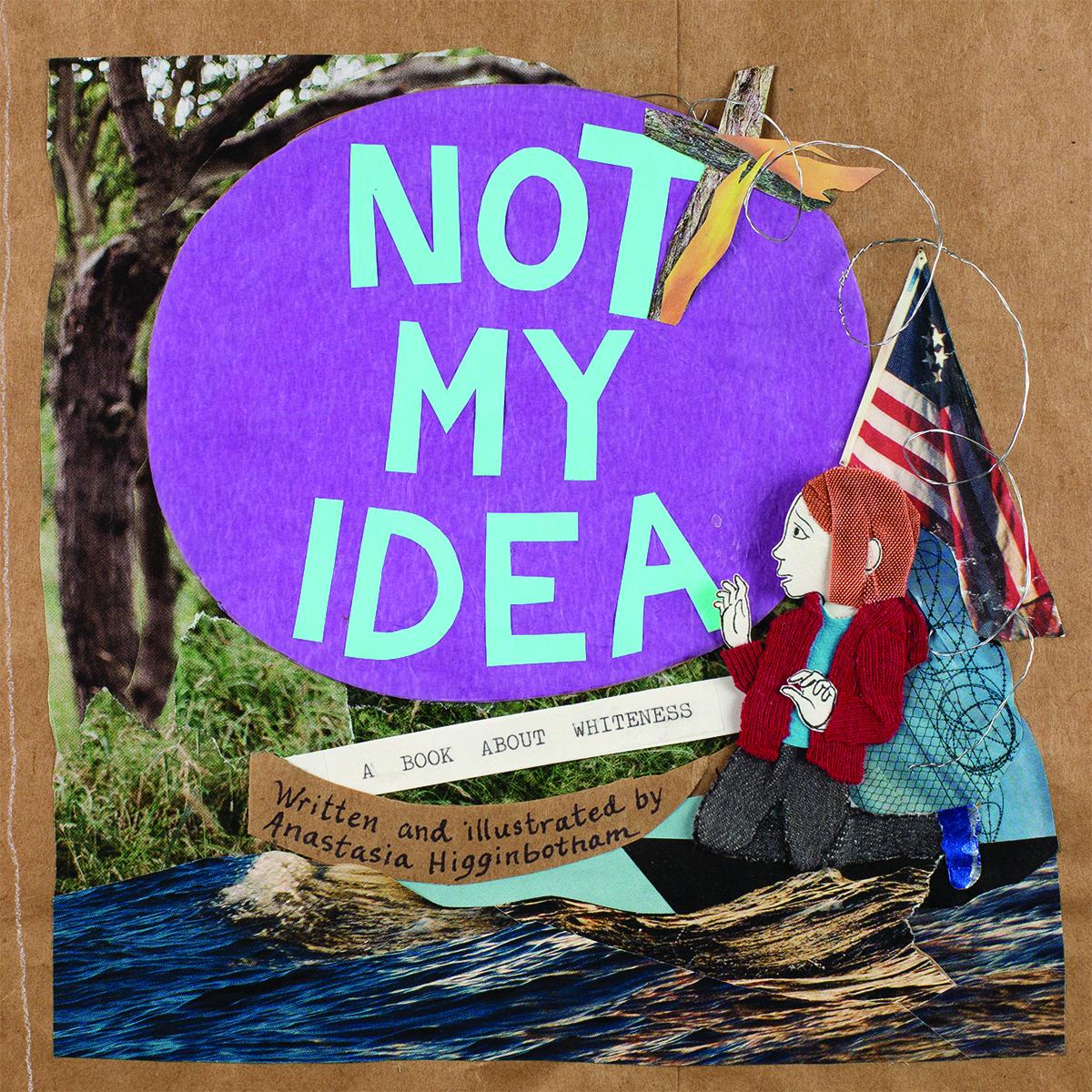
 $17
from
Cultured Books
$17
from
Cultured Books
"Racism is a white person's problem and we are all caught up in it — mostly by refusing to look at it." A white boy sees a news report of a brown man with his hands in the air who was shot — a scene that captures the state of race in America today and that's where this picture book kicks off. It unflinchingly informs kids about whiteness, privilege, oppression of people of color, and what they can do to create a better future. Yes, it will raise uncomfortable questions, but that's kind of the point.
'Dreamers'
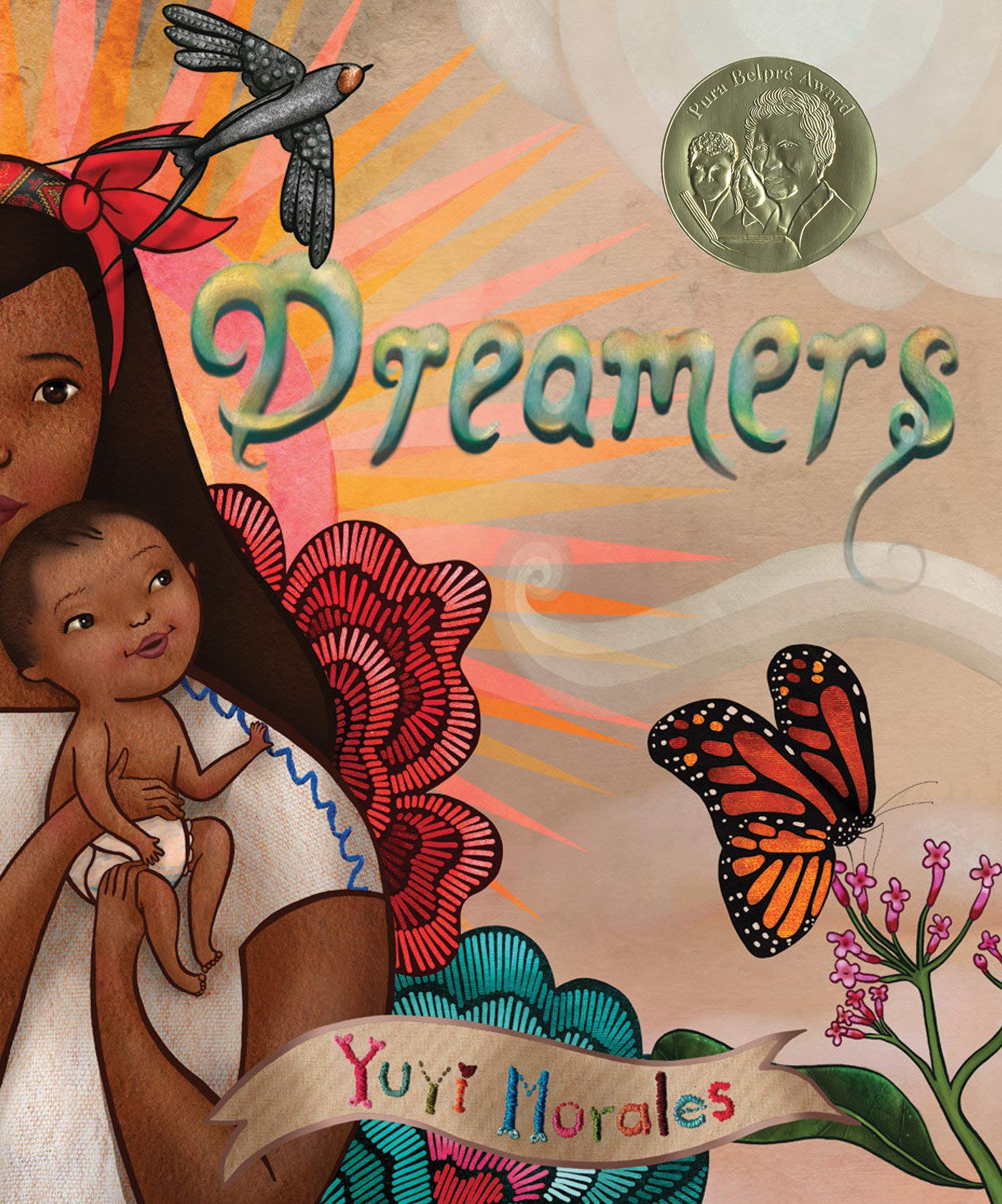
Dreamers is a beautifully illustrated story about the author's immigration journey from Mexico to the US. It touches on the loss families often feel but is ultimately a celebration of resiliance, family, and being able to make a home wherever your heart is.
'A Is for Activist'
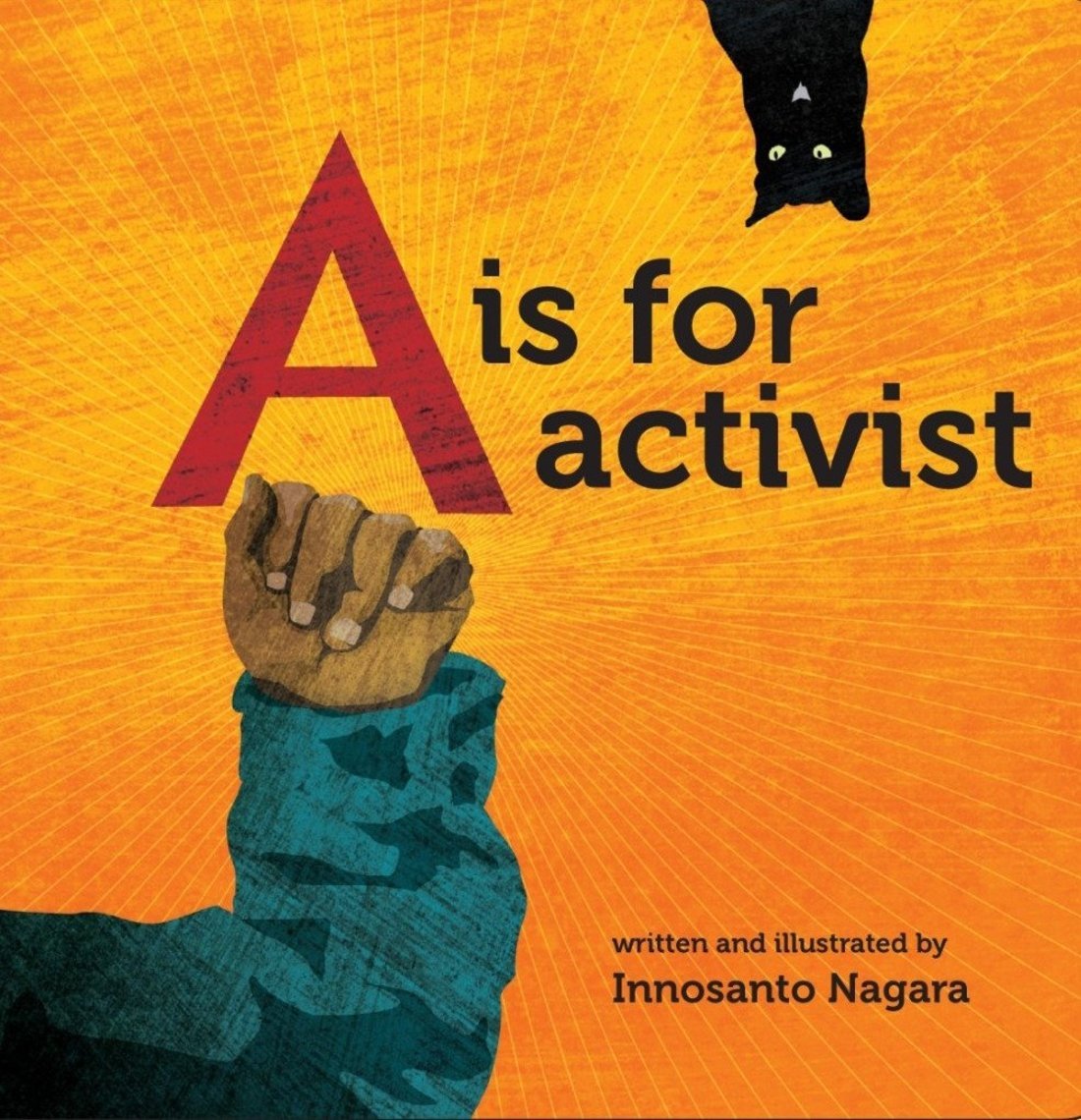
 $10
from
Semicolon Bookshop
$10
from
Semicolon Bookshop
This beautifully illustrated board book teaches even the youngest kid the ABCs of values like community, equality, and justice. While babies and toddlers will enjoy the colorful images, deeper discussions can be had with older kids about ideas presented such as workers' rights and what being an ally truly means.
'The Name Jar'
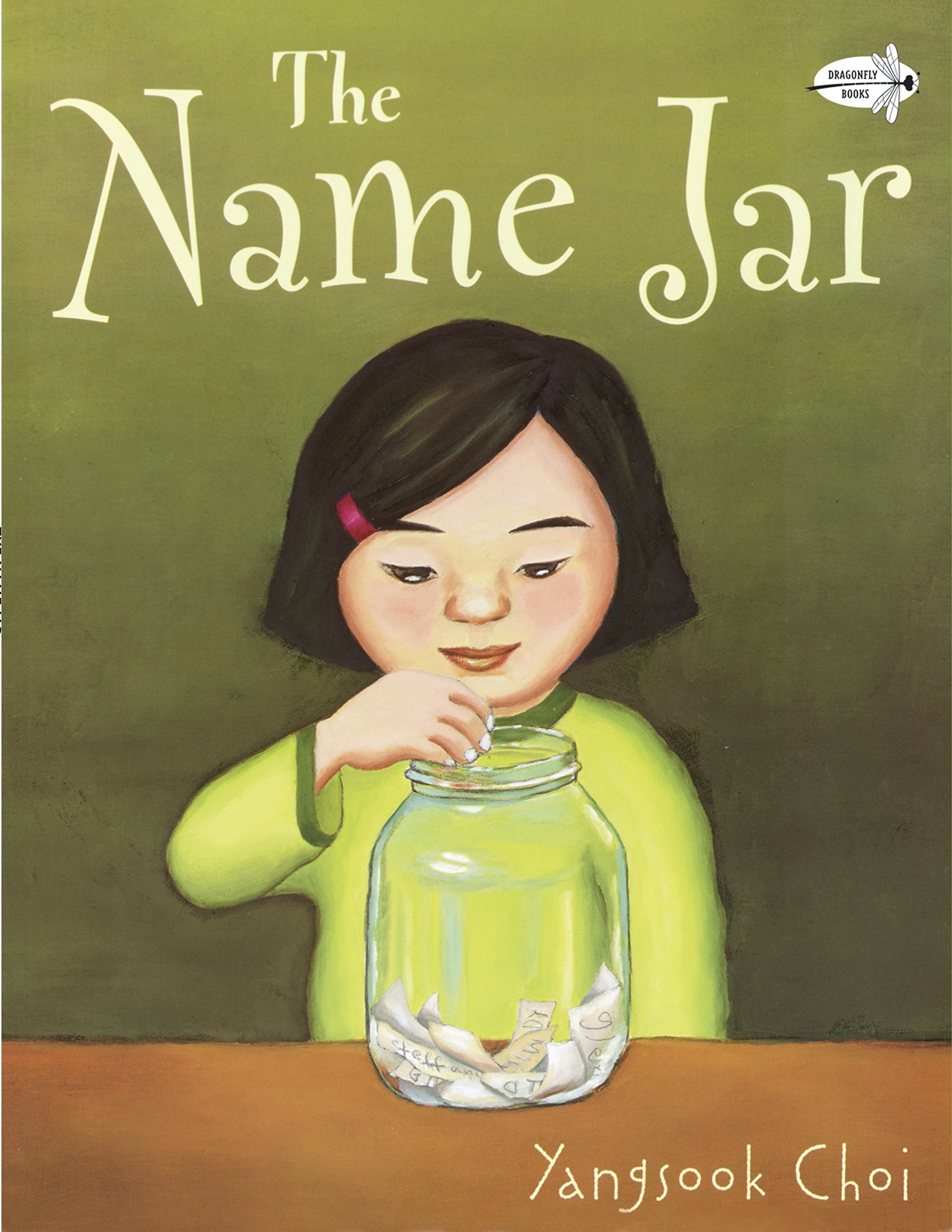
 $7
from
Cultured Books
$7
from
Cultured Books
Unhei just moved to America from South Korea and after being made fun of on the bus for her name, is worried that none of her new classmates will be able to pronounce it. So instead of introducing herself on the first day with her real name, she proclaims she'll pick a new — more "American" — name by the end of the week with the help of everyone contributing ideas to a special jar, but soon learns that's not what she truly wants at all.
'Let It Shine: Stories of Black Women Freedom Fighters'
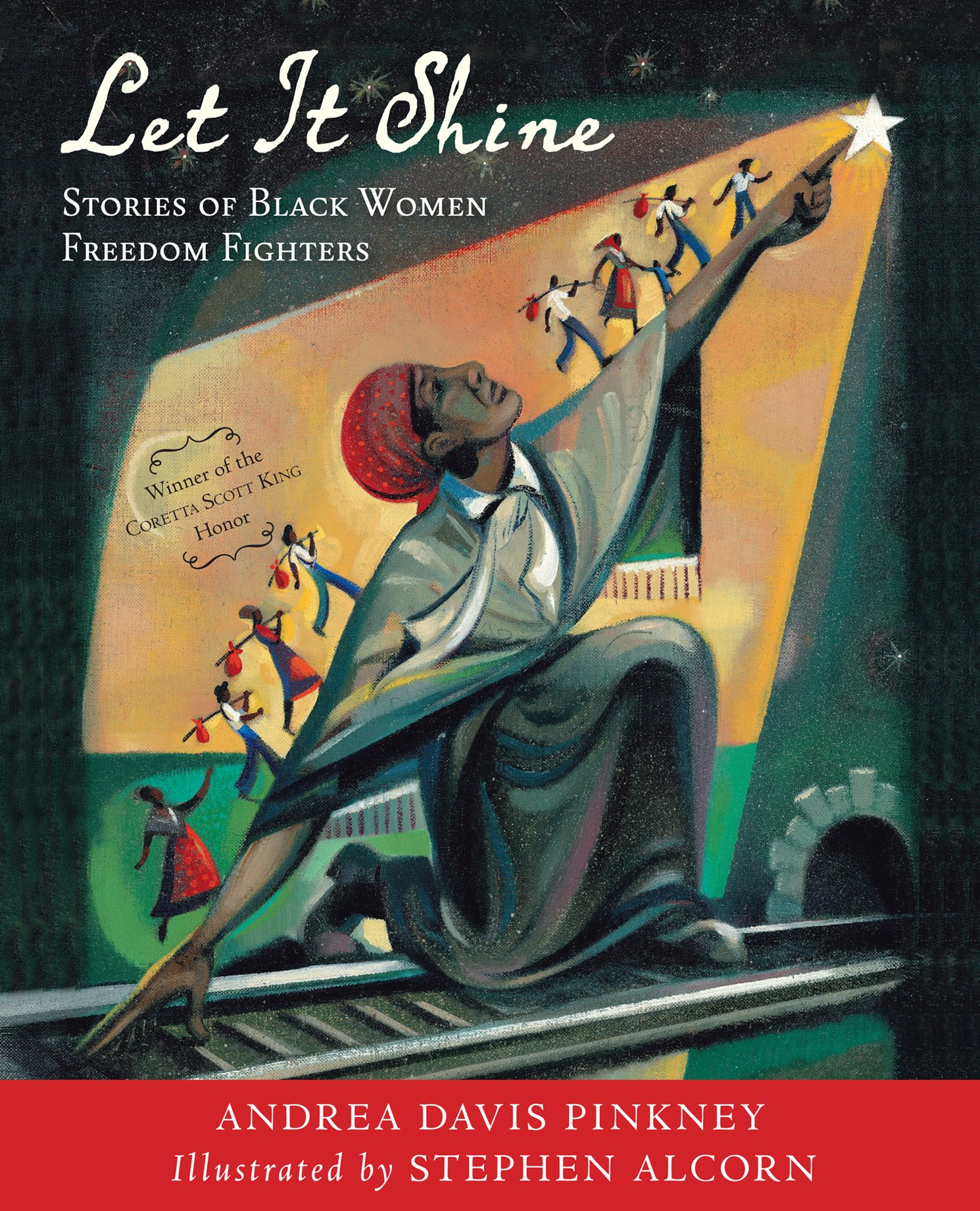
 $9
from
Semicolon Bookstore
$9
from
Semicolon Bookstore
This collection of short biographies shares the stories of 10 courageous black women — Harriet Tubman, Mary McLeod Bethune, Rosa Parks, Biddy Mason, Ida B. Wells-Barnett, Ella Josephine Baker, Dorothy Irene Height, and Fannie Lou Hamer — who fought against oppression, stood up for justice and made their mark on the world, paving the way for future leaders.
'Last Stop on Market Street'
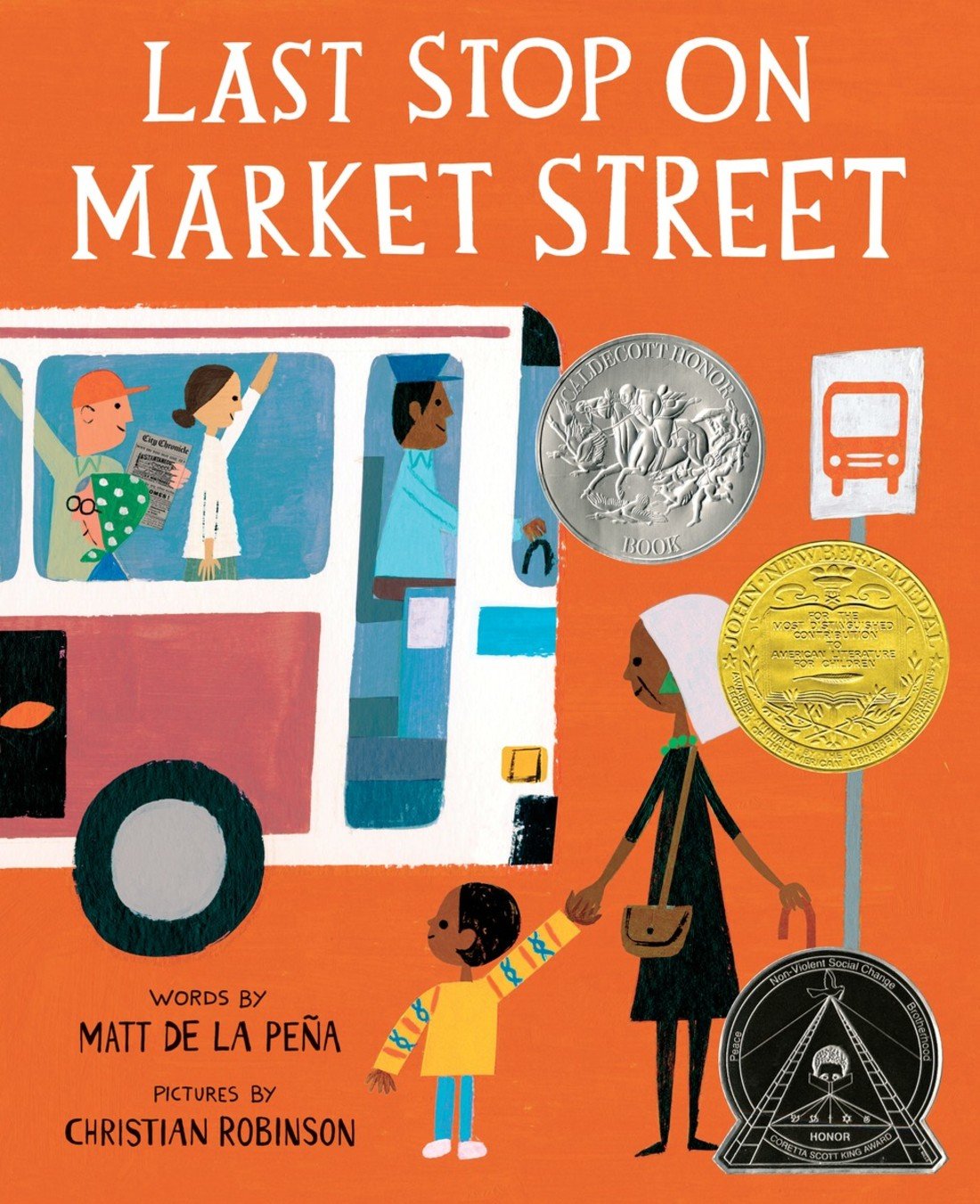
 $16
from
Semicolon Bookstore
$16
from
Semicolon Bookstore
This oft-praised book has become a modern-day children's classic for good reason. As little CJ takes a bus ride through town with his grandmother one Sunday morning, he encounters lots of different people in different walks of life. The book invites kids to notice the disparities in society and find beauty in the world around them.
'The Proudest Blue: A Story of Hijab and Family'
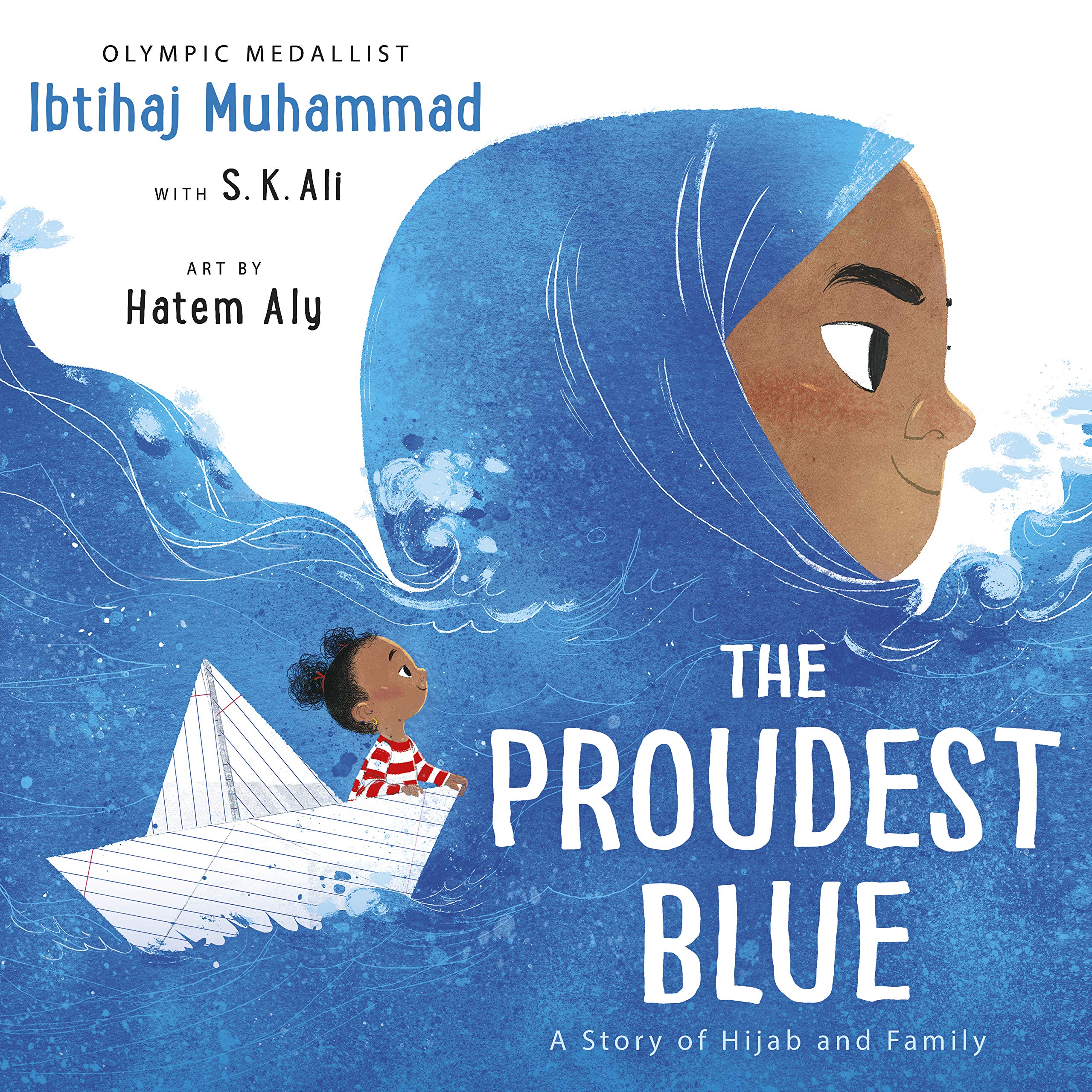
 $16
from
Cultured Books
$16
from
Cultured Books
Written by by the first female Muslim Olympic medalist and social justice activist Ibtihaj Muhammad, this is the powerful story of two sisters and the first day of school — and the first day in a hijab for one of the girls. Not everyone is kind about this milestone and the sisters have to learn to band together and find a new strength.
'Let's Talk About Race'
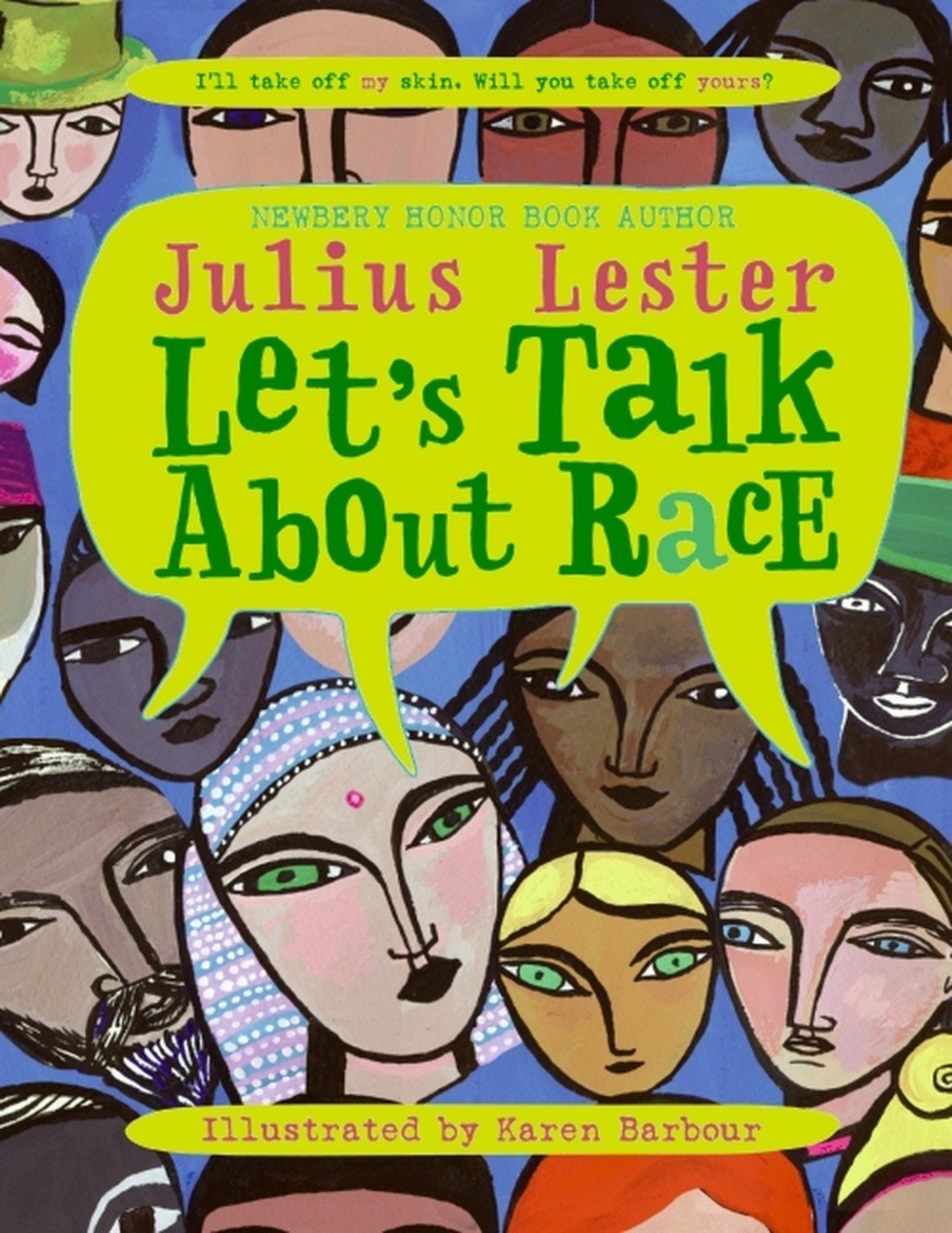
 $7
from
Cultured Books
$7
from
Cultured Books
In this book, Julian Lester, the author of To Be a Slave, shares his personal story and invites kids to raise questions about why race is important. The book teaches kids that all people have stories to tell — and that it's important for the rest of us to listen.
'When We Were Alone'
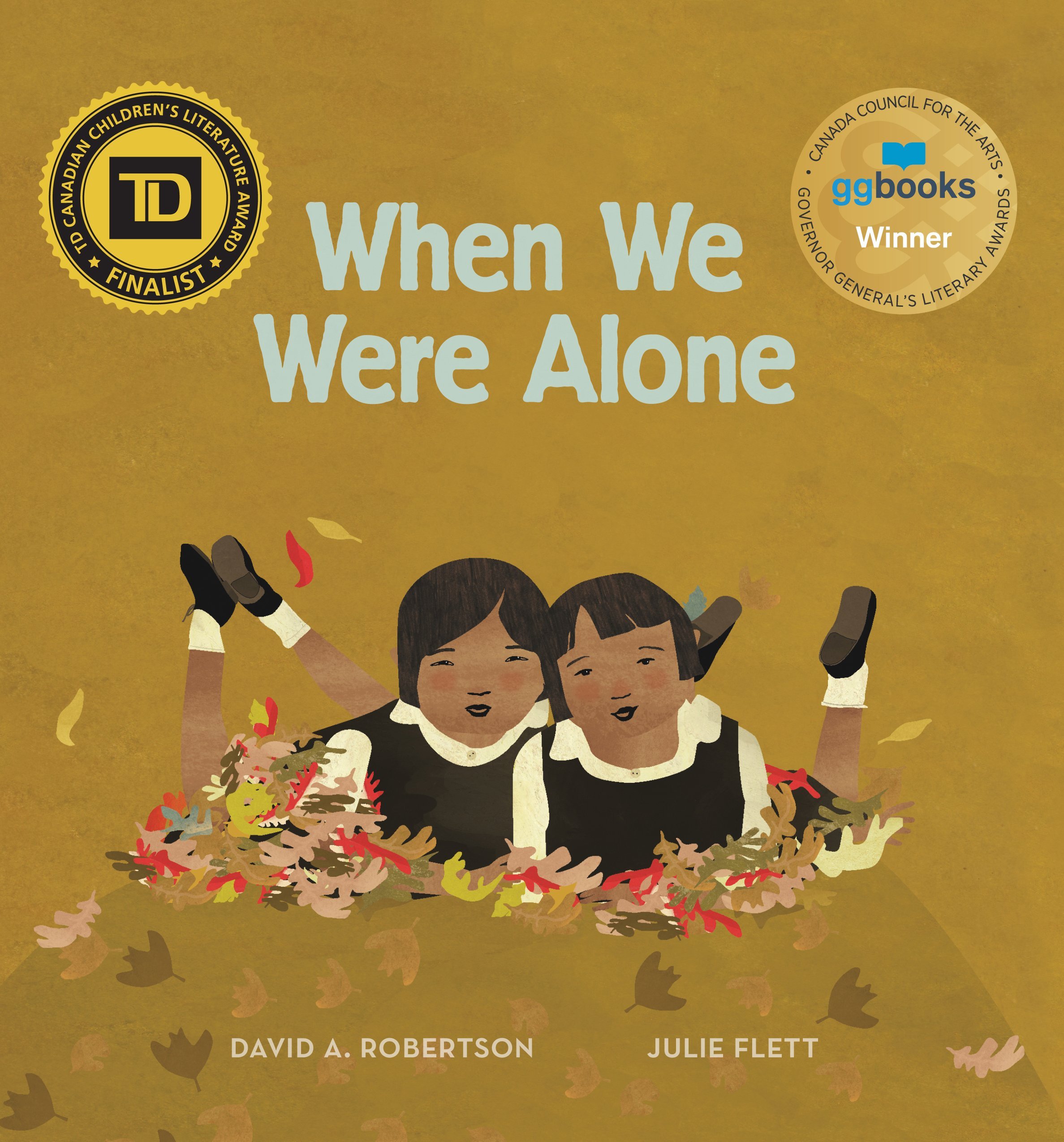
 $18
from
Cultured Books
$18
from
Cultured Books
There are lots of dark moments in American history, and Indigenous Peoples getting moved into boarding schools is just one of them. When a young Cree girl asks her grandmother why she does certain things the way she does, more and more details of the tragic legacy are revealed. Ultimately, it's a story of hope, resilience, and strength. The book opens the door for parents to have meaningful conversations with their kids about some of the true history of the nation that many don't talk about.
'The Story of Ruby Bridges'
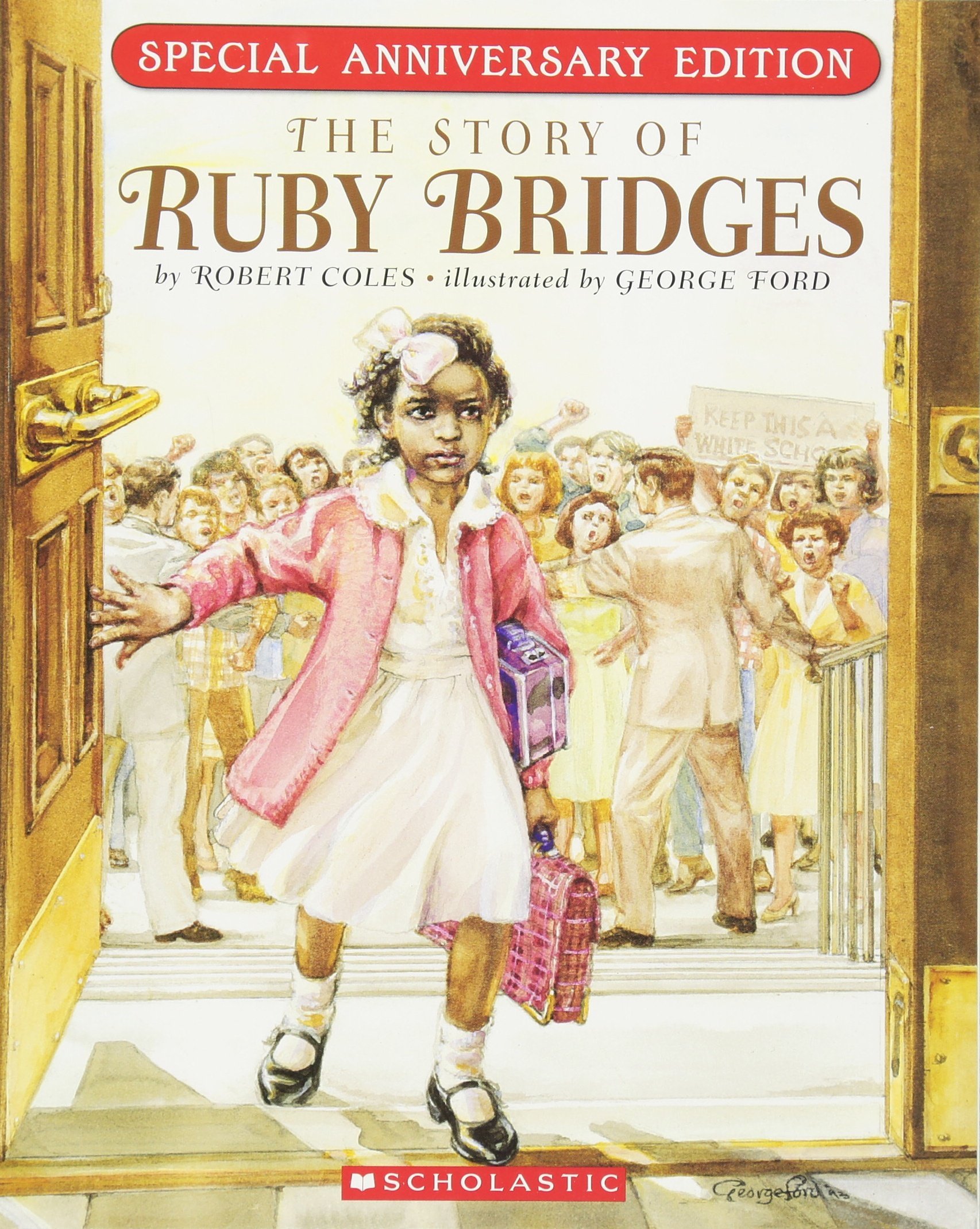
 $6
from
Semicolon Bookstore
$6
from
Semicolon Bookstore
If your kids don't know the extraordinary story of 6-year-old Ruby Bridges, they need to. As the first African American student to attend an all-white school in 1960s New Orleans, Bridges made history. The brave girl had to walk through angry, yelling protestors every single day on her way to school, yet she kept going. This powerful moment in civil rights history is one every young child should know.
'The Colors of Us'
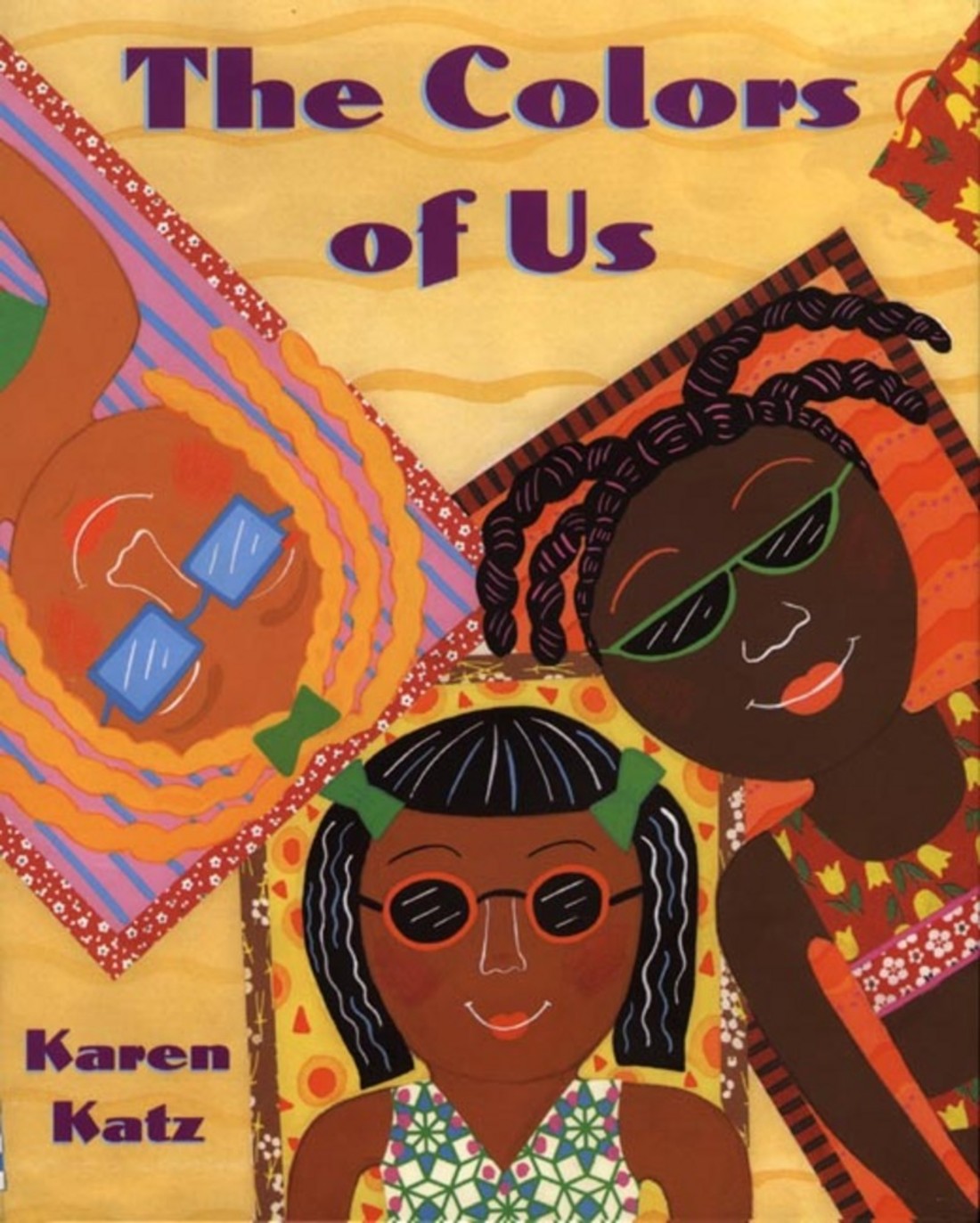
 $8
from
Barnes & Noble
$8
from
Barnes & Noble
Little Lena wants to paint a picture of herself and tells her mother she's going to use brown paint. They then take a walk around the neighborhood and Lena soon comes to realize that "brown" comes in many different beautiful shades. A book even the youngest reader will enjoy, it celebrates diversity and highlights all the things that make us different — and the same.
'Don't Touch My Hair'
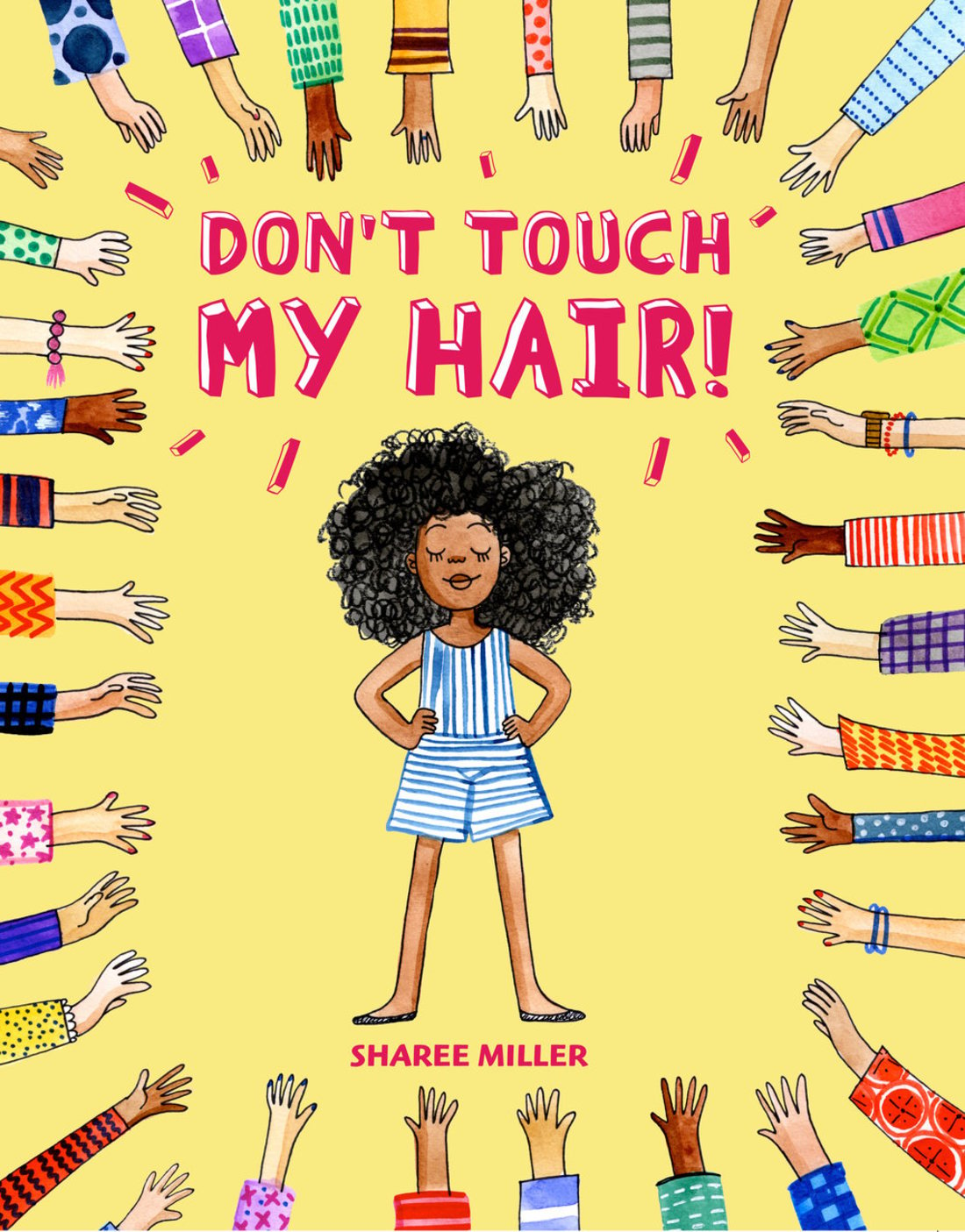
 $7
from
Cultured Books
$7
from
Cultured Books
Everywhere Aria goes, everyone wants to touch her hair until, finally, one day when she's had enough. The playfully illustrated book touches on important topics like setting and respecting boundaries, speaking up, and celebrating black hair.
'Nadia's Hands'
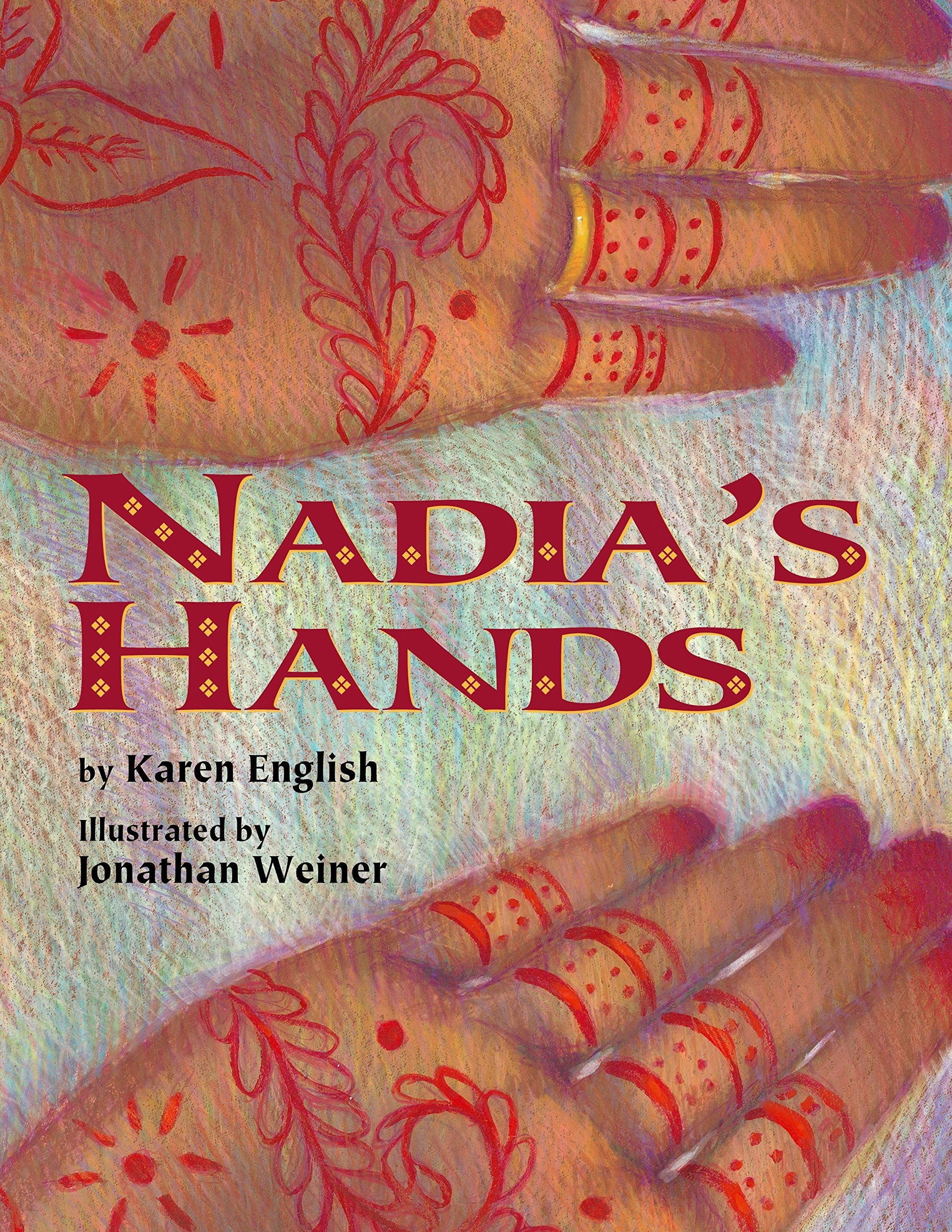
When Nadia acts as the flower girl in a family wedding, her hands are covered in intricate mendhi — something the little Pakistani American girl isn't sure how to feel about it. How long will the ink stay on? What will her friends at school think? This lovely book explores the often complex feelings second- and third-generation children often struggle with and how powerful it is to embrace the vibrant culture we come from.
'Shining Star: The Anna May Wong Story'
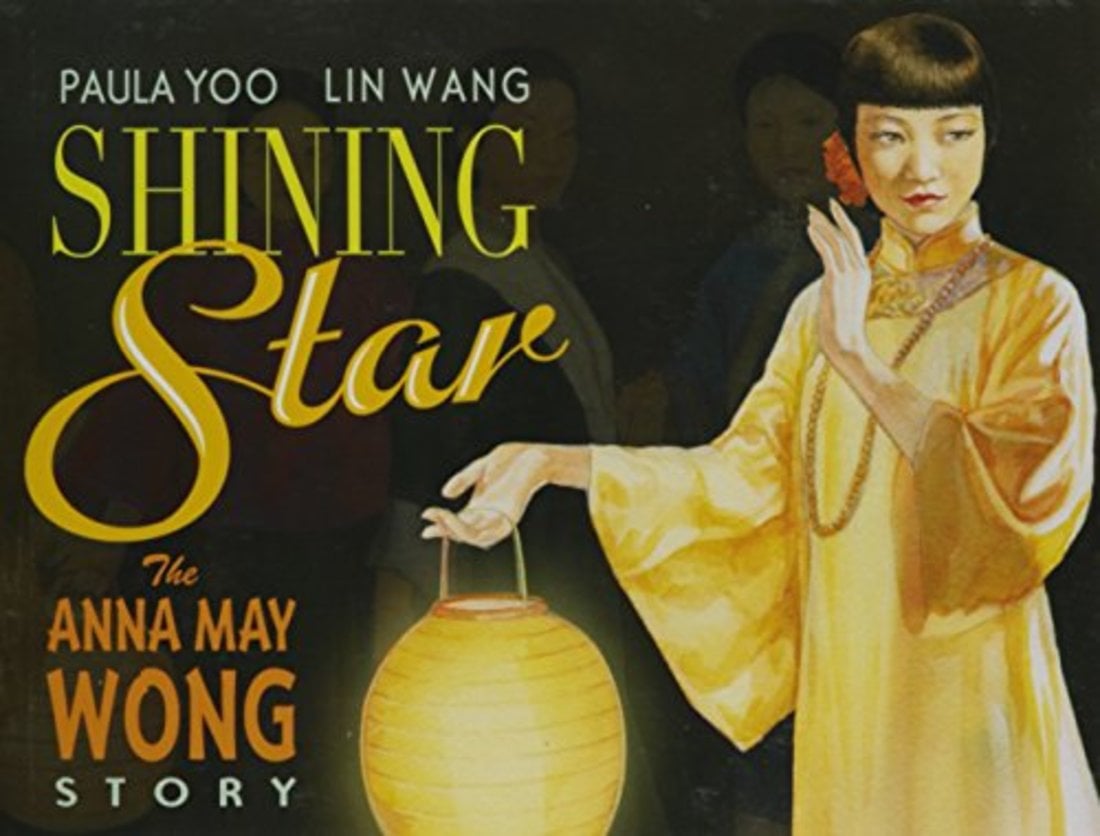
If you've never heard of Anna May Wong, you're not alone. Wong was a pioneering Chinese American movie star in the 1920s who, despite facing constant discrimination, never stopped fighting for less stereotypical roles for fellow Asian American actors, paving the way for those who would come after her.
'Antiracist Baby'
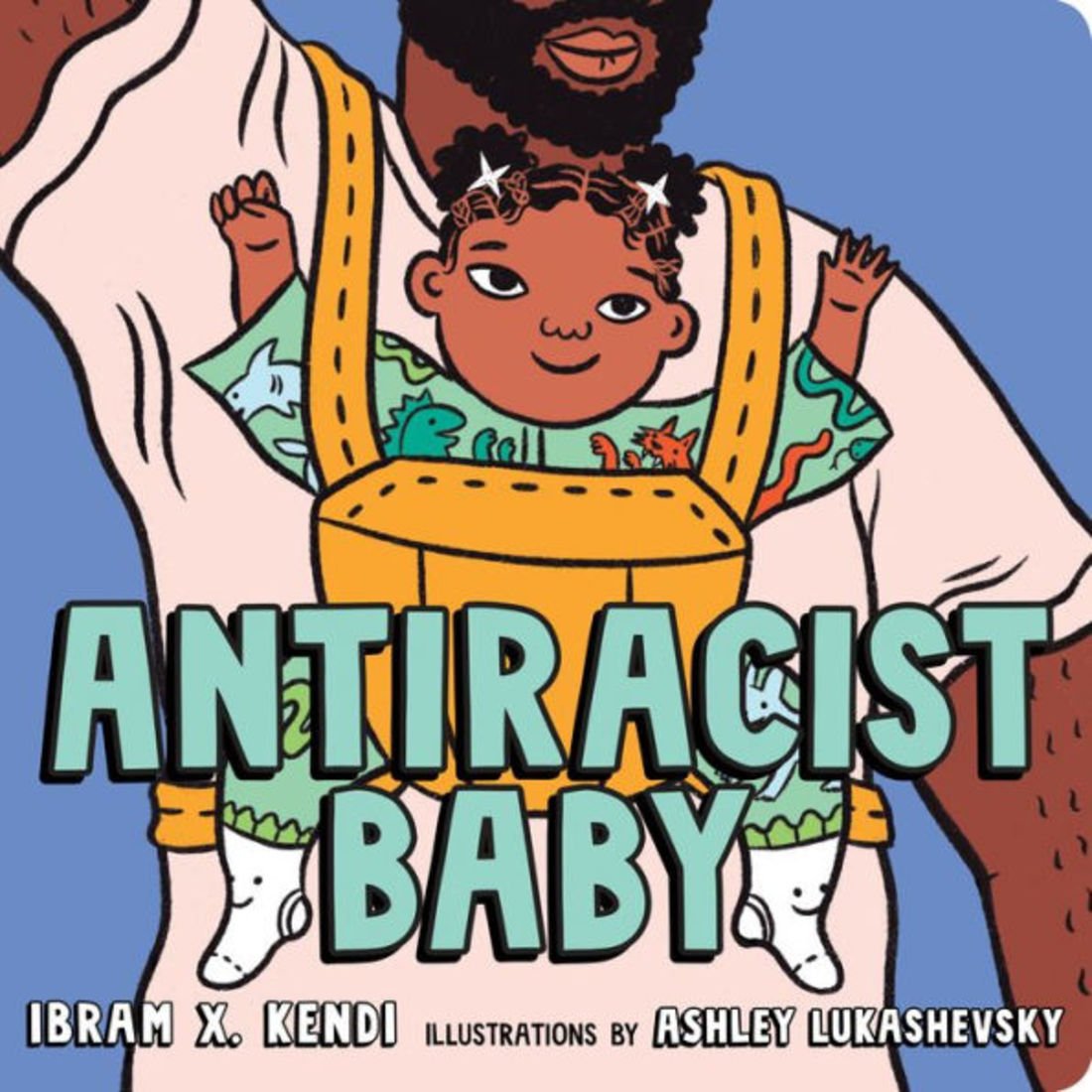
 $8
from
Cultured Books
$8
from
Cultured Books
Written by the author of How to Be an Antiracist — which should be added to every grown-up's reading list — this delightfully illustrated board book introduces the concept of racism and racial justice in language even the youngest child will understand. They're never too young and it's never too early.



